Garden Your Way to Strong Bones Volunteering at Animal Shelters
Smart Diets Lower Stroke Risk
An Alternative Route to Health?




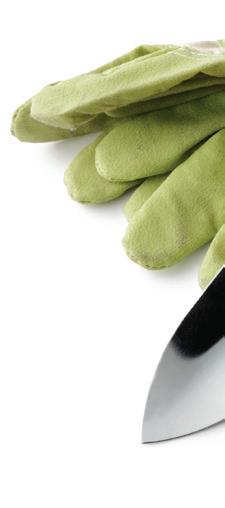


Gardening is an effective way to fight osteoporosis. The University of Arkansas found that women who garden or do yard work at least once a week have higher bone density than those who do traditional forms of exercise. Having a higher bone density decreases the risk of osteoporosis, which affects about 54 million American men and women.
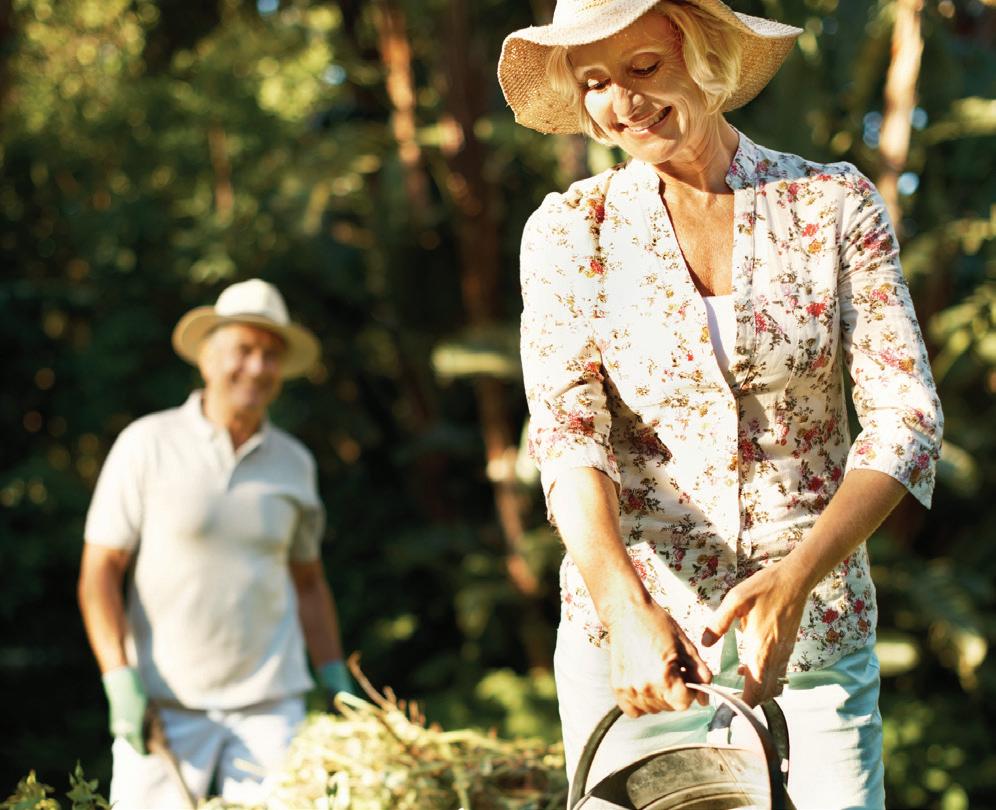
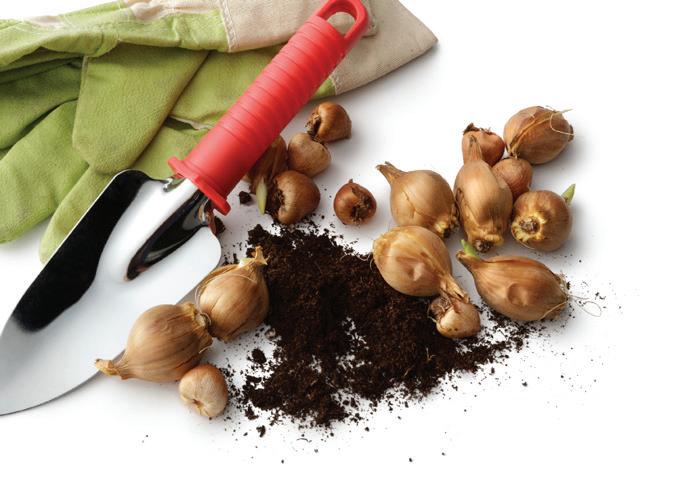
Lead researcher Dr. Lori Turner was quoted as say ing, “[Gardening is] taken for such a dainty activity. But there’s a lot of weight-bearing motion going on in the garden — digging holes, pulling weeds, pushing a mower.” The National Osteoporosis Foundation states that weight-bearing exercises are important for building and maintaining bone density.
People are likely to garden more often than other forms of exercise because it feels less like a workout and more like a hobby. It also provides exposure to the sun, which helps the body produce vitamin D and absorb more calcium, an important nutrient for bone health.
As with any physical activity, it is important to get your doctor’s approval, especially if you don’t exer cise often. Make sure to warm up before starting, stay hydrated and use sun protection.
Executive Publishers
H.G. FOX, SR. SUZANNE FOX
Editor
TAMARA CHARBONNET
WHITNEY ALEXANDRA
DEBBIE WELDON
JENNIFER CABALLERO
LAUREN CALVE' VIVIAN DUGAS KELLY SMITH
© 2016 Jumpstart Publishing, LLC, New Orleans, LA All rights reserved
Printed in the USA by Fox Print Services, igofox.com
The information contained in Active Seniors is intended for educational purposes only. A reader should never substitute information contained in Active Seniors for the advice of a health care professional. Jumpstart Publishing, LLC and publishers of Inspire Health, do not endorse or promote any of the products or services described in the pages of Active Seniors and the publishers do not verify the accuracy of any claims made in the editorial or advertisements contained in Active Seniors. Readers should not use the information in Active Seniors for diagnosis or treatment of any health problem or for prescription of any medication or other treatment. Readers should consult with a healthcare professional before starting any diet, exercise or supplementation program, before taking any medication, or have or suspect they have a health problem.
Your spouse is gone. Your kids are grown. How do you remake your life? If you’re on the south side of 60 and wondering what’s next, cheer up! There are lots of people just like you, eager to establish new, pleasant relationships.
Make a list of your hobbies and interests. This can reveal opportunities to relate to others

who share your enthusiasm. This new beginning can be an exciting time of growth.
There are lots of people just like you, eager to establish new, pleasant relationships.
1Follow your heart. If you love golf, photography or cooking, these activities can open new friendships when you join a club, take a class or invite others to share your passion.

2If you’re good with animals, you are guaranteed to meet people when you call a shelter and offer to provide free labor.
3Visit the local hospital and volunteer your time. On holidays and weekends, your visits will brighten everyone’s day, and you’ll create lasting friendships.
4Gyms and health clubs offer many options for building new relationships. Join an exercise class, take lessons in yoga or try new dance steps. Most clubs have activities specially designed for seniors.
5Check out the offerings at your public library. Maybe you’re just the person to read to children. Enroll in group classes on subjects like poetry, writing or acting.
6Go to church. Your church has countless opportunities for your service, and you’ll find lots of like-minded friends.
7Get a part-time job. Pick employers that could make use of your talents Or try something new, like working in a coffee shop or a clothing store.
8The Internet is a treasure trove of opportunities to meet others. One of the best sites is meetup.com. Enter your zip code and select a topic that interests you. You’ll be directed to a group in your area that is doing just what you selected. If you don’t find a group, you can start one.

Are you wondering what to do with your free time now that you are retired? Try volunteering at a local animal shelter. People who volunteer may live longer because they make new social connections and find new purpose in their lives, and animal companion ship has several health benefits, including lower blood pressure and a lower stress level.
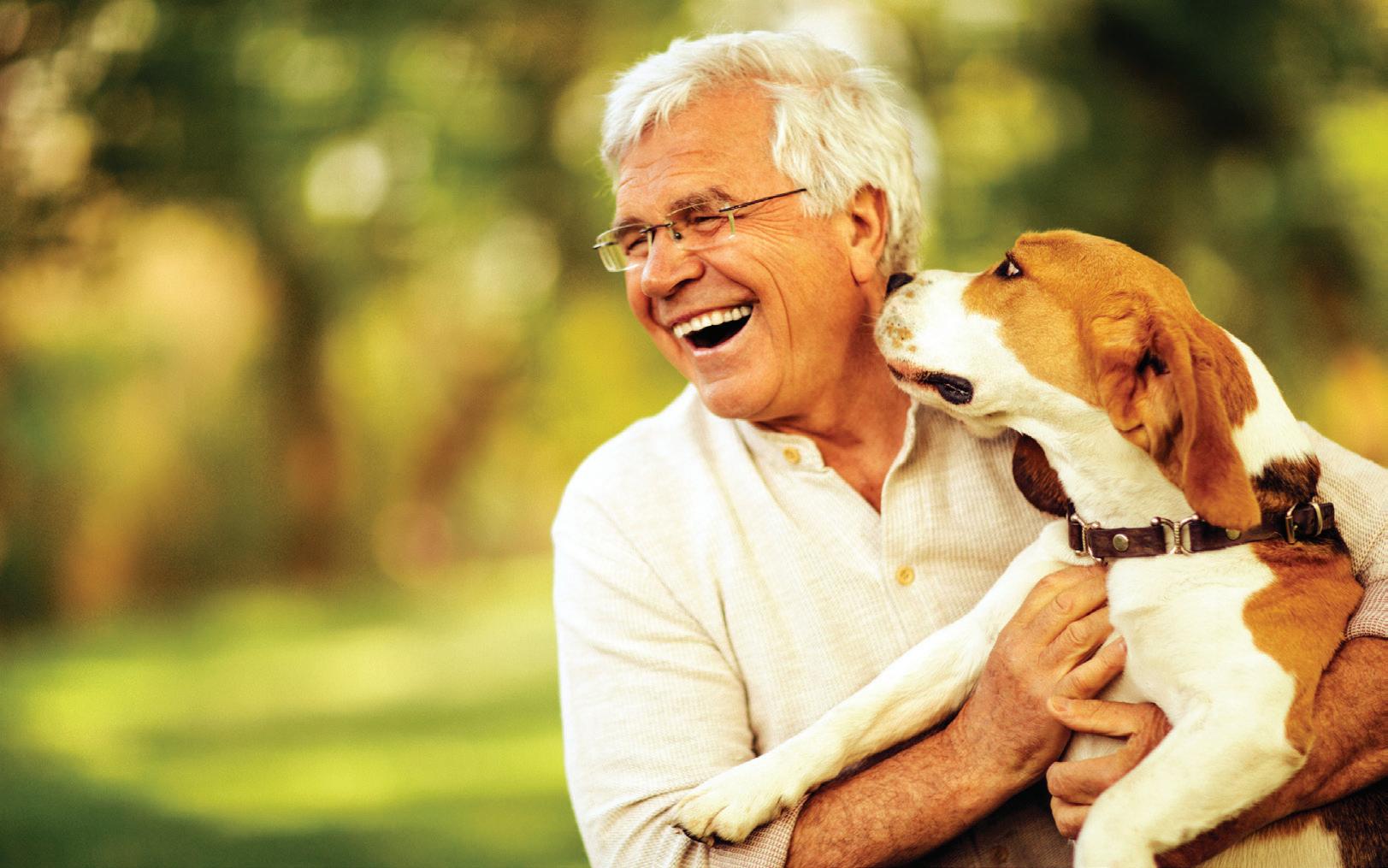
Research animal shelters in your area. Shelters need assis tance in many different areas, so it shouldn’t be difficult to find an opportunity that is a good fit.
If you are able, you can exercise, socialize or feed the animals. Shelter animals desperately need companion
ship, and by spending time with them, you’ll help them become happier and more likely to be adopted.
You can also foster an an imal in your home while they wait to be adopted. Fostering helps shelters get a better sense of an animal’s personality and what their ideal home environ ment should be.
Do you own a digital cam era? You can help animals get adopted more quickly by taking photos of them for the shelter’s website. A good photo can tru ly make a difference in the time it takes for an animal to get adopted. Photos that showcase their personality may convince potential adopters to take a second look.
Adoption volunteers can assist visitors while they look for the perfect companion, explaining adoption procedures and helping them complete the necessary paperwork. Admin istrative volunteers may answer phones, direct questions to the correct department or help the office manage paperwork.
It can be hard for shelters to keep up with laundry, such as blankets and towels, so volun teers are always needed in this area.
Even if you are unable to volunteer your time, you can still make a difference by do nating wish list items like food, blankets, towels, toys, treats and cleaning supplies.
Shelters need assistance in many different areas, so it shouldn’t be difficult to find an opportunity that is a good fit.

FACT: Those who exercise daily live longer and have healthier, active lives. Not only do exercise and nutrition help you lose weight and look great, they help reduce stress, promote heart health, lower blood pressure and reduce the chance of stroke.
These exercises will burn extra calories, stabilize the core for balance and even help strengthen the back, arms and core.
• Anchor back onto floor. Bend knees and point toes to activate muscles.
• Tuck chin into neck, and slowly lift shoulders off floor. Keeping a 90-degree bend in knees, lift knees over hips, and lift shoulders as far as you can toward knees. If you feel pressure or discomfort in back, release feet back to floor.
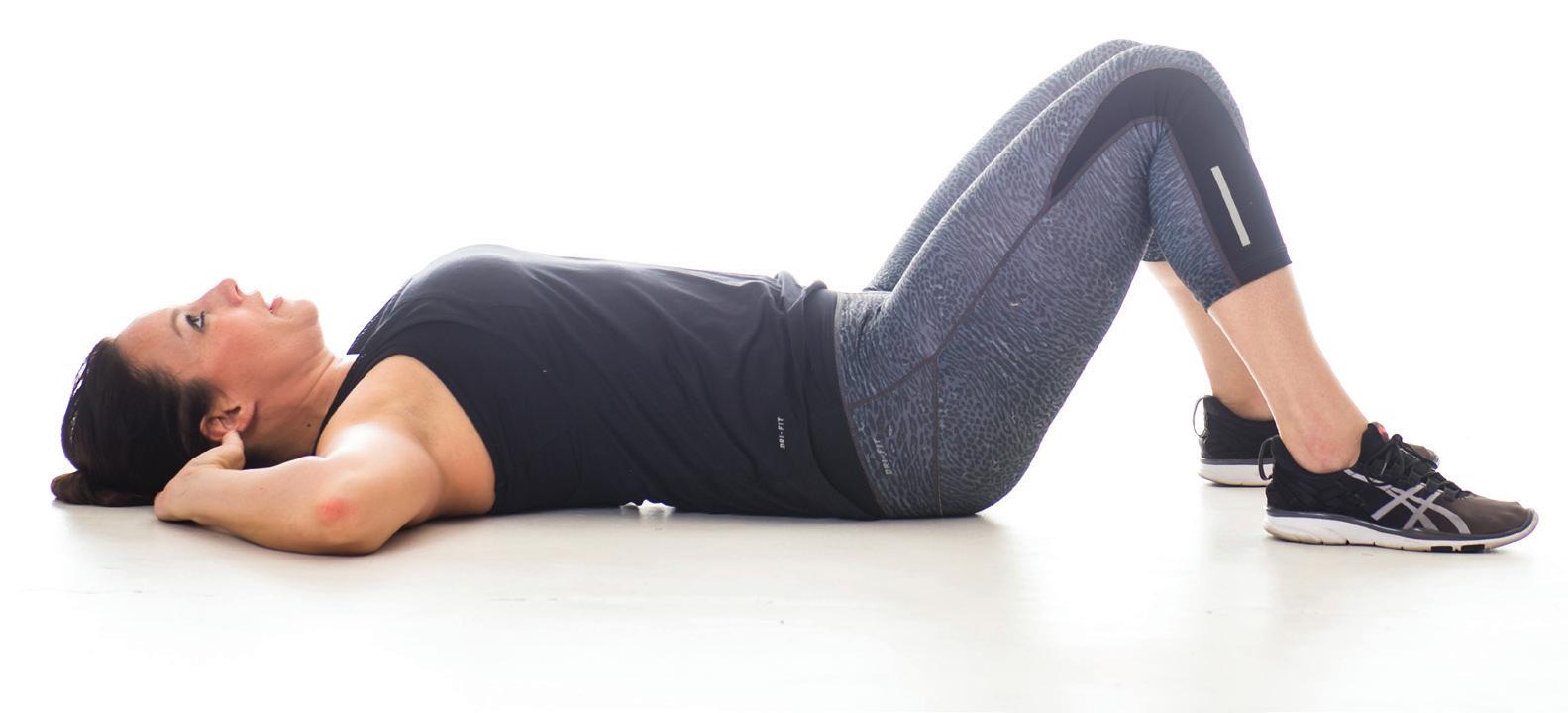
• Release and repeat 10 to 20 repetitions. As your core strengthens, you will be able to increase repetitions.
Tami Charbonnet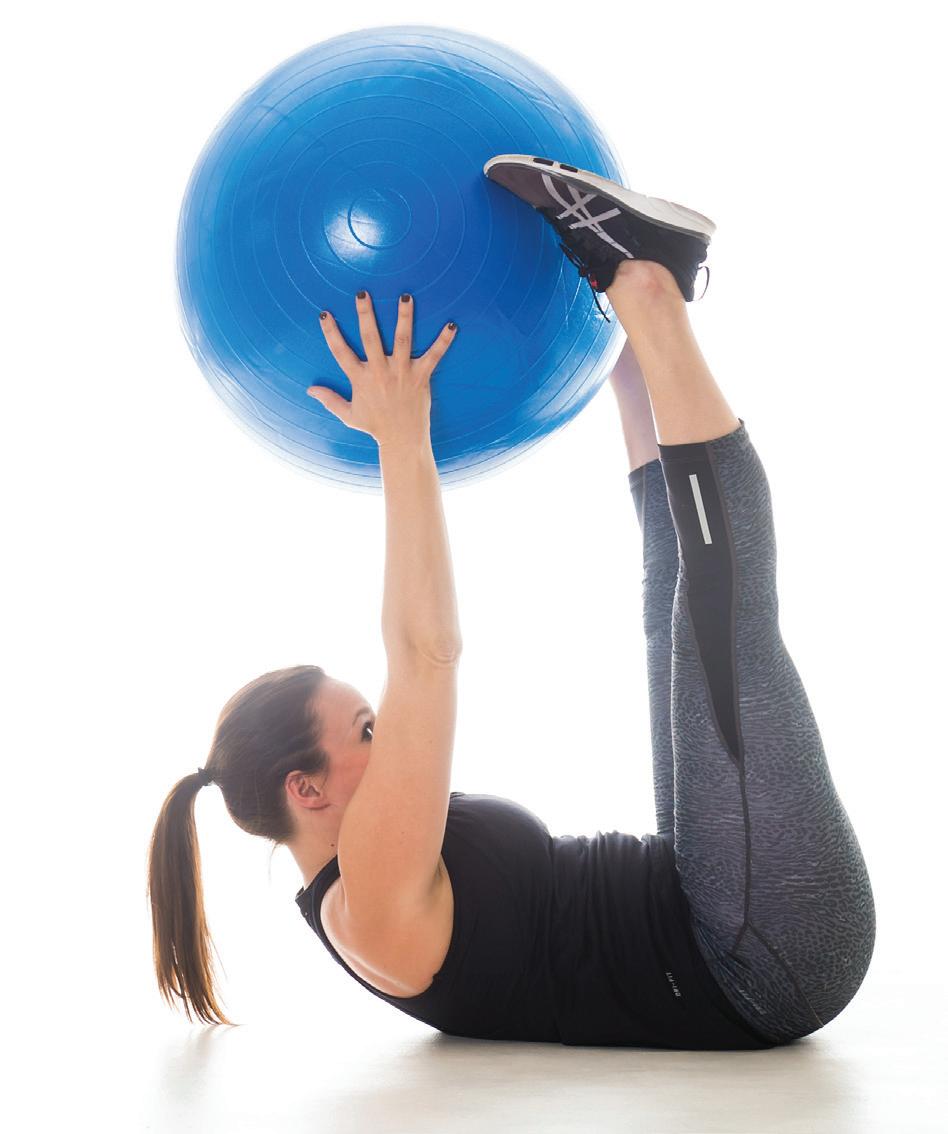
• Relax down to floor onto back. Hold a stability ball extended over the head.
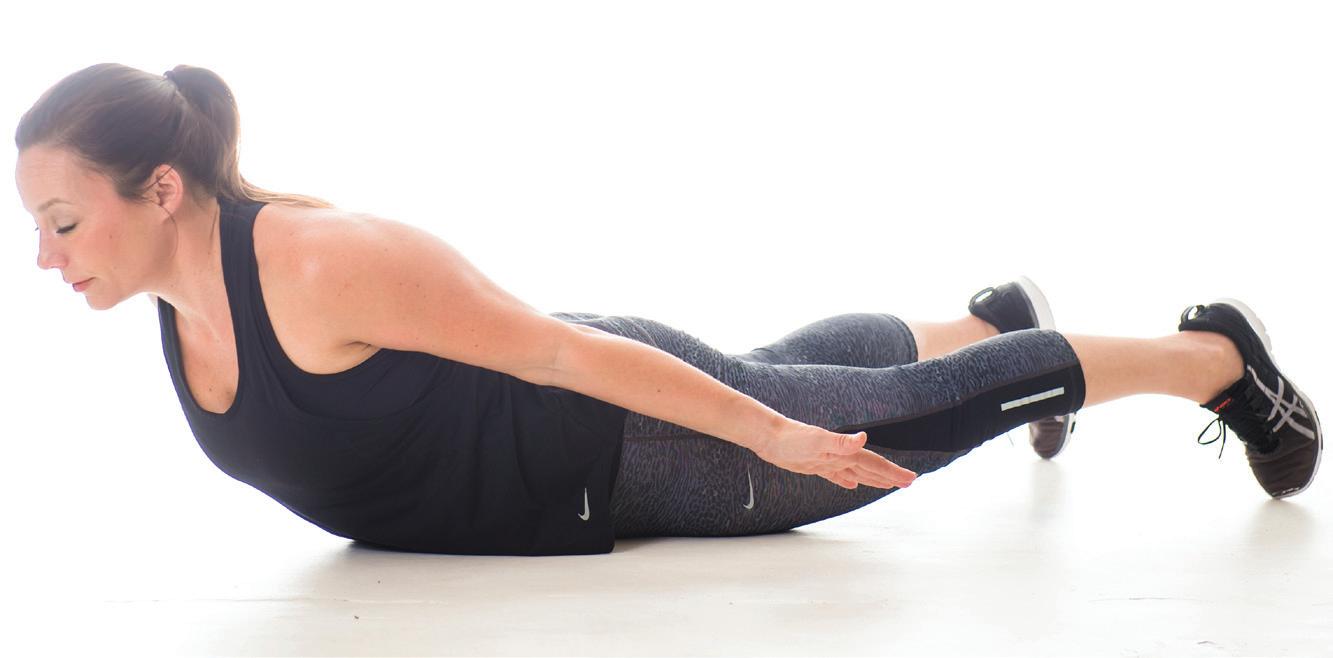
• Tuck chin in, and lift ball up while lifting extended legs. Bend knees and keep back anchored to floor if you feel pressure. Allow ball and legs to come together, hold at top, and slowly return to start position. *If this move is too difficult, begin with crunches and back extension and build up to this move.
• Come down to floor onto stomach. Ground hips to floor.
• Lengthen arms out away from sides of body with thumbs facing upward.
• Squeeze gluteus to protect lower back, and lift ribs off floor.

• Hold for 20 seconds, then release. Repeat back extensions for 10 to 20 repetitions.

TheAmerican Heart Association (AHA) and American Stroke Association (ASA) confirm that diets high in vegetables, whole grains, fruit and nuts are signifi cant factors in lowering the risk of a first-time stroke.
Recently updated guidelines published in AHA’s journal, Stroke, indicate that eating Med iterranean or DASH (Dietary Approaches to Stop Hyperten sion)-style diets, regularly en gaging in physical activity and managing your blood pressure can lower your risk of a firsttime stroke.
These diets are similar in their emphasis on fruits, vegetables, whole grains, legumes, nuts, seeds, poultry and fish. Both are limited in red meat and foods containing saturated fats, which are mostly found in animal-based products such as meat, butter, cheese and full-fat dairy.
The updated guidelines recom mend these tips to lower risk:
• Eat a Mediterranean or DASHstyle diet supplemented with nuts.
• Reduce the amount of sodium in your diet.
• Prevent high blood pressure by getting more physical ac tivity, eating a healthy diet and managing your weight.
• Visit your healthcare provider annually for a blood pressure evaluation.

• Monitor high blood pressure at home with a cuff device.
• If your blood pressure medi cation doesn’t work or has bad side effects, talk to your health care provider about finding something that works for you.
• Don’t smoke. If you’re a wom an who experiences migraines with aura, smoking raises your risk of stroke even more than in the general population.
Time is of the essence when diagnosing a stroke. The faster a patient is treated, the more likely they are to survive and have a better recovery. If you think someone you know may be having a stroke, act F.A.S.T. to recognize the warning signs.
Face: Ask the person to smile. Does one side of their face droop?
Arm: Have them raise both arms. Does one drift downward?
Speech: Ask them to repeat a simple sentence. Is their speech slurred, or does it sound strange?
Time: If the answers to any of these are “yes,” it’s time to call 911. Note the time when symptoms began.
8 ounces farfalle (bowtie) pasta

Tbsp. olive oil
garlic cloves, crushed
can (19 ounces) garbanzos, rinsed and drained
cup unsalted chicken broth
cup golden raisins
4 cups fresh spinach, chopped
2 Tbsp. Parmesan cheese
Cracked black peppercorns, to taste
1. Fill a large pot ¾ full with water and bring to a boil. Add the pasta and cook 10 to 12 minutes until al dente (tender) or according to the package directions. Drain the pasta thoroughly.
2. In a large skillet, heat the olive oil and garlic over medium heat. Add the garbanzos and chicken broth. Stir until warmed through. Add the raisins and spinach. Heat just until spinach is wilted, about 3 minutes. Don't overcook.
3. Top each serving with sauce, 1 teaspoon Parmesan cheese and peppercorns to taste. Serve immediately.
salad

spice in
Add the
to coat.
the
Remember that rice cooker you purchased a few years ago? Take it out and start cooking. Not only do rice cookers deliver the just-right texture and taste for rice-based dishes, but they also have diverse uses.
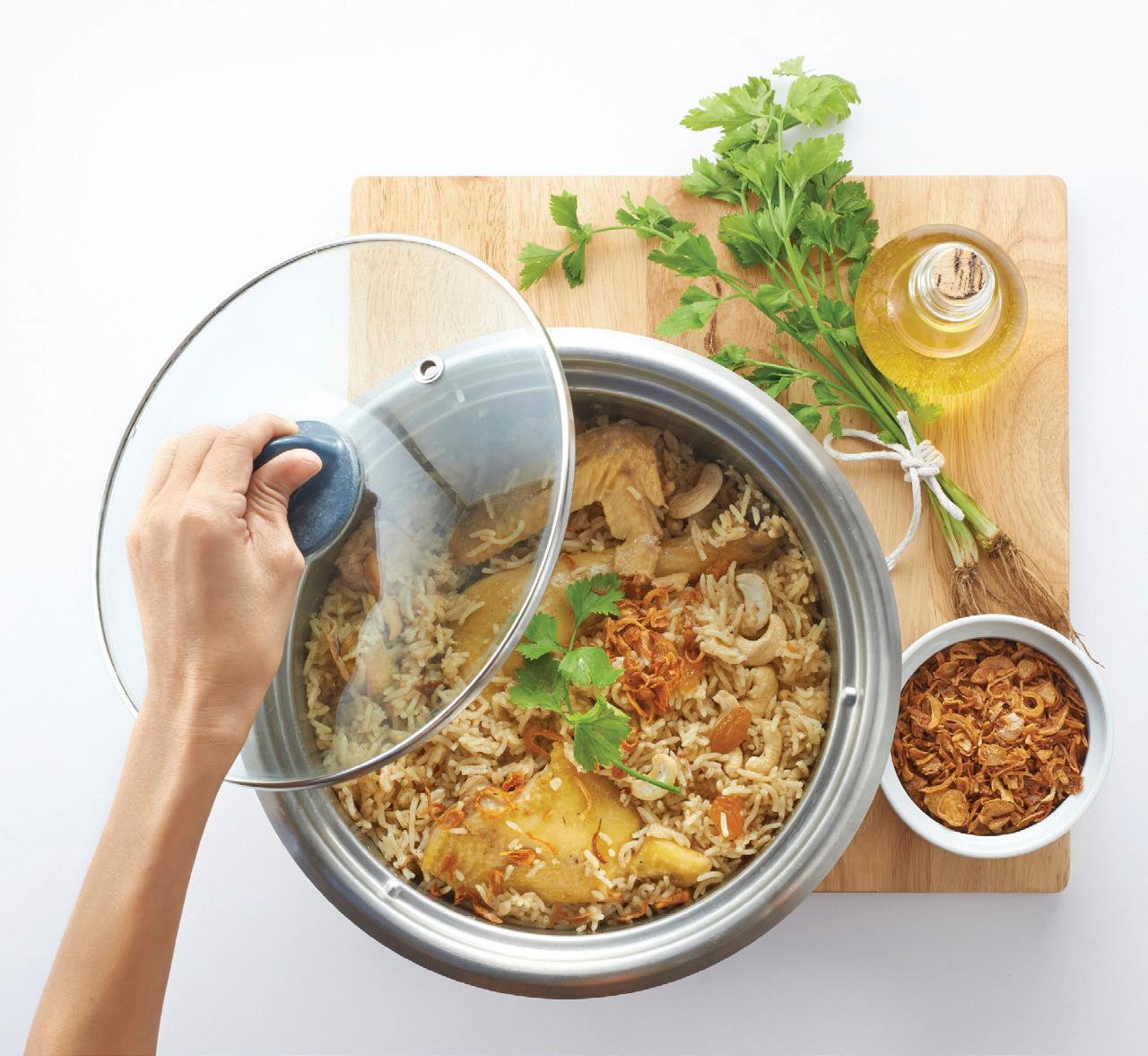
Soup, cakes, porridge, quinoa, pasta and meat dishes are among the many meals that begin in a rice cooker. Use your imagination to create your own dishes, or follow an increasing number of recipes posted on the Internet.
Start by steaming vegetables. Your rice cooker probably came with a steamer basket; if not, you should be able to find an accessory to fit your model. Keep the cover on — don’t forget to add water — and check the progress every now and then. After a couple of tries, you will know how long it takes to cook vegetables to your desired texture.
Check out the manual that came with your cooker. Chances are you will find recipes and suggestions for using it to its full potential.
Your cooker is also a great alternative to the microwave. Your leftovers will taste better with slow and thorough cooking.
It is normal to become forgetful from time to time, especially as you get older. Who hasn’t forgotten where the keys or glasses are? We laugh about these “senior moments,” but the natural mental decline that occurs when you age can be worrisome.

One of the best ways to keep your mind young is to learn something new. When you try a new skill, the con nections between the parts of your brain are strengthened and re-wired to be more active. The more you use your brain, the better it performs, and the
more difficult the activity, the greater the memory improve ment
Here are some ways to exercise your brain.
Learn a musical instrument. A recent TED (Technology, Entertainment, Design) presentation by educator Anita Collins explained that when you listen to music, multiple areas of your brain become en gaged and active. When you play an instrument, that activ ity becomes a full-body brain workout. Research shows that playing a musical instrument stimulates your brain, increas es your memory and makes
you a happier person.
Master new technology. If an activity is out of your comfort zone, it will exercise your brain. Mastering a video game, for example, helps to train critical thinking skills. A Mayo Clinic study found that regular computer use reduced the risk of mild cognitive im pairment by 53 percent.
Learn a language. Learn ing a new language enlarges your hippocampus, which can deteriorate as you age. This helps with long-term memory. The Brain and Language Jour nal pointed out that switching between languages may give
“The greatest thing in life is to keep your mind young.” — Henry Ford
your brain a workout because it constantly has to choose between words and meanings.
Research in The Annals of Neurology shows that learning a second language as an adult can slow brain decline. Try listening to music or reading a book in your new language.
Learn to dance. A study published in the New England Journal of Medicine shows that 76 percent of senior citi zens who learned to dance had a reduced risk of dementia.
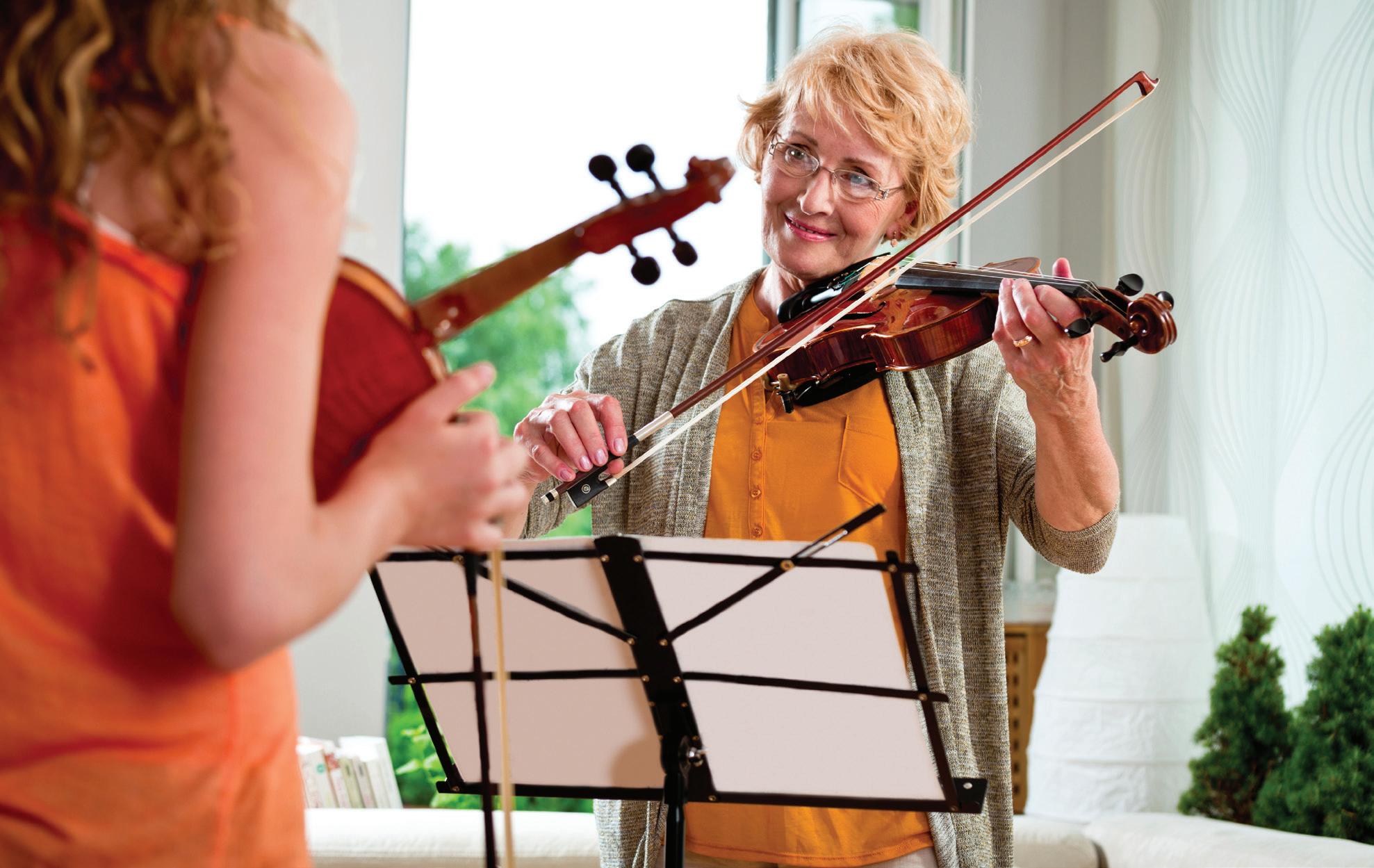
Dancing can also boost your brainpower and improve your memory skills. Your body gets a great workout, too!
Start a hobby or craft. A new skill keeps your brain active. Researchers at the Mayo Clinic found that learning a new creative hobby helped reduce the risk of dementia and preserve memory. Learn to
play chess or join a photogra phy club. Become fully im mersed in the process to boost your memory and cognitive function.
Read. The mental stimula tion strengthens and creates new brain pathways while improving short-term memory recall. For a change of pace, try reading books from a different genre than you usually do.
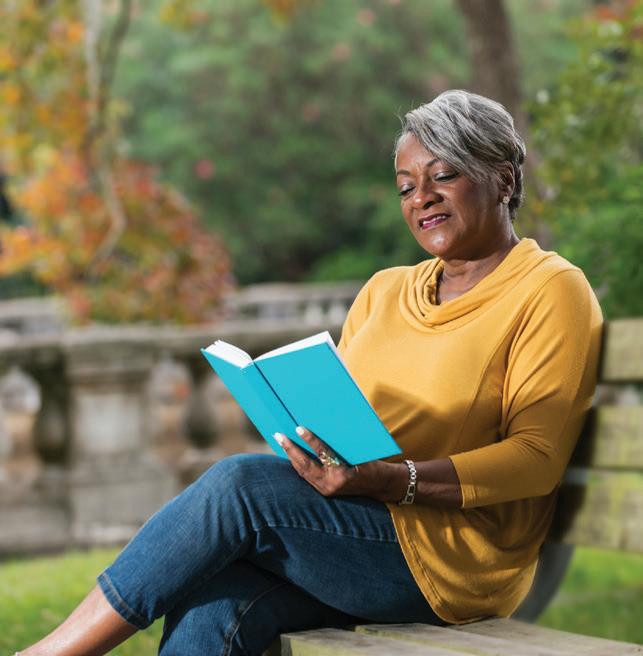



Sharpen your mind with Lumosity, a well-reviewed app that trains various areas of your brain, such as memory, attention and problem solving, using more than 40 games. The app gives you access to a training program based on scientific research and allows you to track your progress, seeing how you compare with other users.
$11.99 monthly subscription (Apple and Android)
Your company just announced downsizing. Your position is eliminated and you are faced with sudden retirement.
Start now to build a new financial plan. According to the National Association of Personal Financial Advisors (NAPFA), these guidelines can ensure financial well-being:
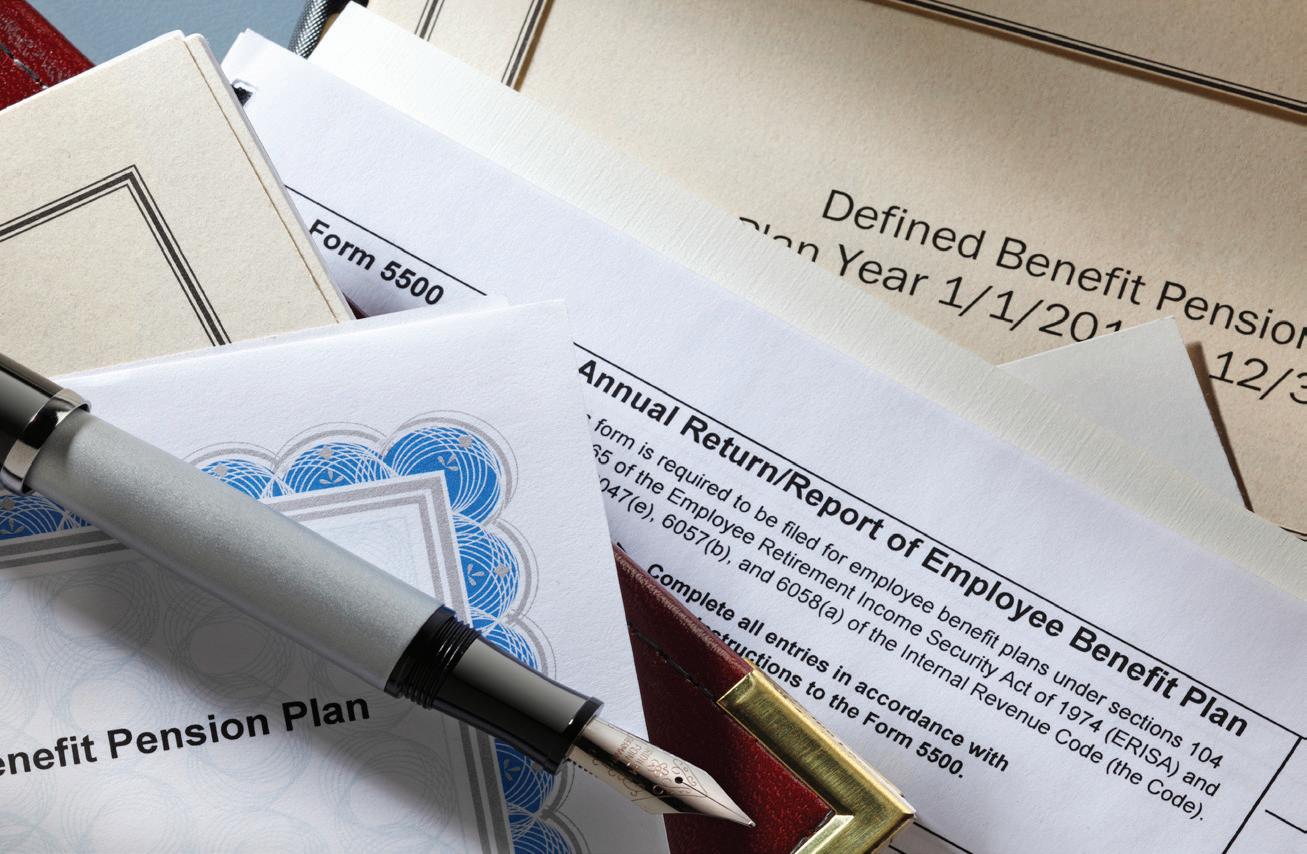
1 Make a retirement income plan. This will show how much income you will have, what sources it will come from, and when each source starts. Include Social Security, pensions, annuities, anticipated savings, investment account withdrawals and projected retirement account
withdrawals. Once this plan is in place, you can decide to reduce expenses or find work.
You can lay out various combinations of things and see which plan gives you the best long-term outcome.
2Re-evaluate needs versus wants. When your income is suddenly lower than expected, the first thing to do is cut back on the wants. Go through your bank and credit card statements, and find ways to eliminate the extras.
3 Explore alternative moneymaking options. Reach out to former professional contacts to discover what projects might be available. Look into starting a consulting business, or see if your hobbies might be put to good use.
4Avoid knee jerk decisions. Do not instantly file for Social Security, apply for your pension or take out retirement money — unless that is the optimal choice for you. Many people start Social Security early only to find work a year later.
5Distinguish between temporary and permanent choices. Making a temporary decision to alter something may be exactly what is needed to buy enough time to get your permanent retirement plan in place.
One of the best things you can do when facing sudden retirement is to seek the assistance of a qualified financial planner. Visit napfa.org for additional information and suggestions for selecting a financial advisor.

Pick the plan that gives you the best long-term outcome.
Spring may seem like a distant dream, but in reality, it’s right around the corner! Now is the perfect time to start planning an activity you can enjoy with your grandchildren while they are on spring break.
The arrival of spring means local farmers markets are abundant with fresh produce. Kids love to help in the kitchen, so bring your grandchildren to the market and let them pick out fruits and vegetables for a meal you can
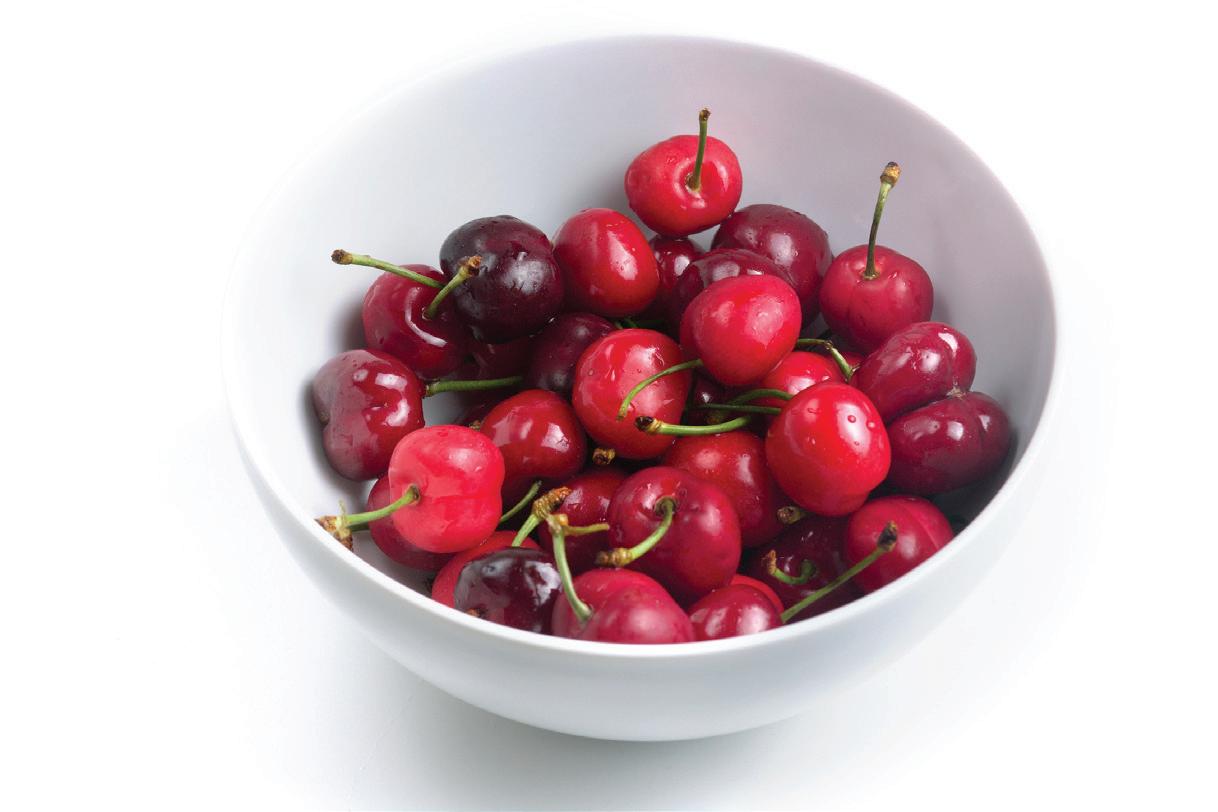
prepare together. Ask vendors if you can try samples. This is a great opportunity to get your grandchildren to taste food they have never tried before. Even if you have picky eaters, they may try new food if they play a part in the preparation. You can also go to a pick-your-own farm, where they can harvest fruits and vegetables themselves.
When you get home, search for recipes you can make using your purchases. Gather the ingredients and tools you’ll need. Your little chefs will
get even more excited if you provide them with their very own aprons and kid-friendly kitchen tools. Assign younger children simple tasks, like measuring or mixing. Older children can help with tasks like cutting or grating.
Once the meal is done, it’s time to enjoy your creation. Your grandchildren will be excited to try the dishes they helped prepare, and you’ll have a new activity you can enjoy together!

2 tsp. dry yeast
1 tsp. honey or sugar
1 cup very warm water
3½ to 5 cups flour
½ tsp. salt
¼ cup oil Sauce
1 (8-ounce) can tomato paste
1 (8-ounce) can water
1 tsp. basil
1 tsp. oregano
1 large onion, finely chopped
1 green pepper, finely chopped
½ pound mushrooms, sliced
Black or stuffed olives, sliced
8 ounces mozzarella cheese or soy mozzarella
1. Combine yeast, honey or sugar and water in a large bowl until the yeast has dissolved. Stir in flour, salt and oil.
2. Knead the dough in the bowl a few times, then cover it, and let rise for an hour.
3. Punch the dough down, and divide into four equal-sized balls. Cover them with a towel.
4. On a lightly floured surface, roll each ball out into a 10-inch circle with a floured rolling pin.
5. Lightly oil two cookie sheets, and put two circles on each. Heat the oven to 425 degrees F.
6. To make the sauce, mix tomato paste, water, basil and oregano in a small bowl. Spread the sauce evenly on the circles.
7. Sprinkle on the toppings of your choice.
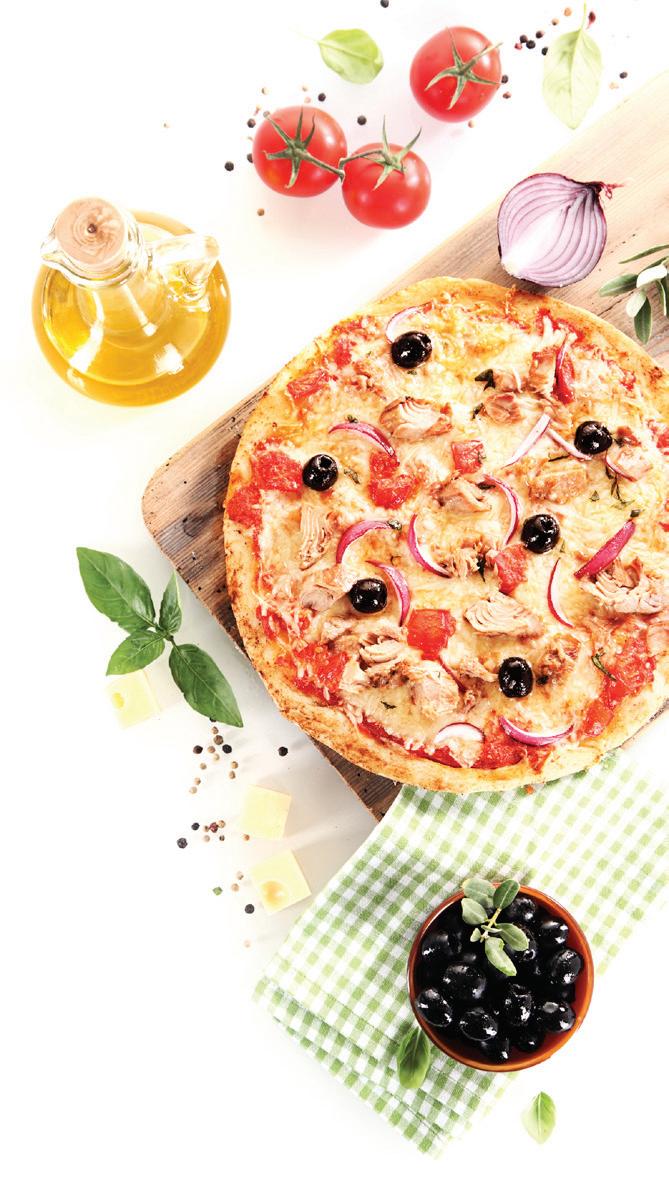
8. Grate cheese and sprinkle on top.
9. Bake for 15 to 20 minutes until the cheese is melted and the crust is cooked.
Recipe courtesy of Kids Can Cook, written by Dorothy Bates (Book Publishing Company)


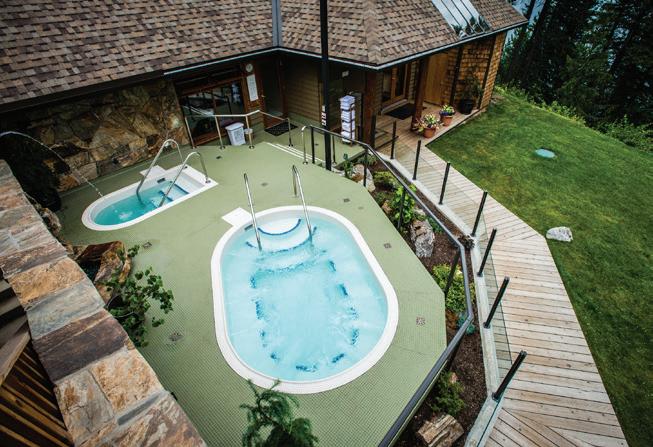 By Suzanne Fox
By Suzanne Fox
R everse the effects of aging and experience vitality at Mountain Trek.
At this all-inclusive, luxurious wellness retreat, you will:
• Relax fully, reduce stress and reset your metabolism.
• Reclaim your health with a body full of energy, vitality and spirit.
• Energize your day with yoga, hiking and educational classes.
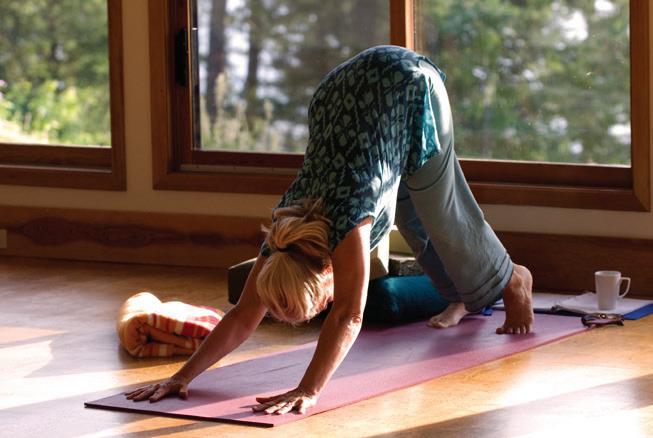
• Achieve natural hormonal balance through education and action.
• Improve your eating with a natural-focused meal program.
• Enjoy seasonal, local, wild and organic foods.
• Retreat and reconnect with yourself and nature.
The Summer Fitness Hiking Program in Nelson, Canada, is $4,500 USD weekly per person. It’s as if you’re standing in a postcard with scenery of mountaintops, mirror-calm lakes, forests as far as the eye can see and hiking trails with some of the most beautiful views in the world.
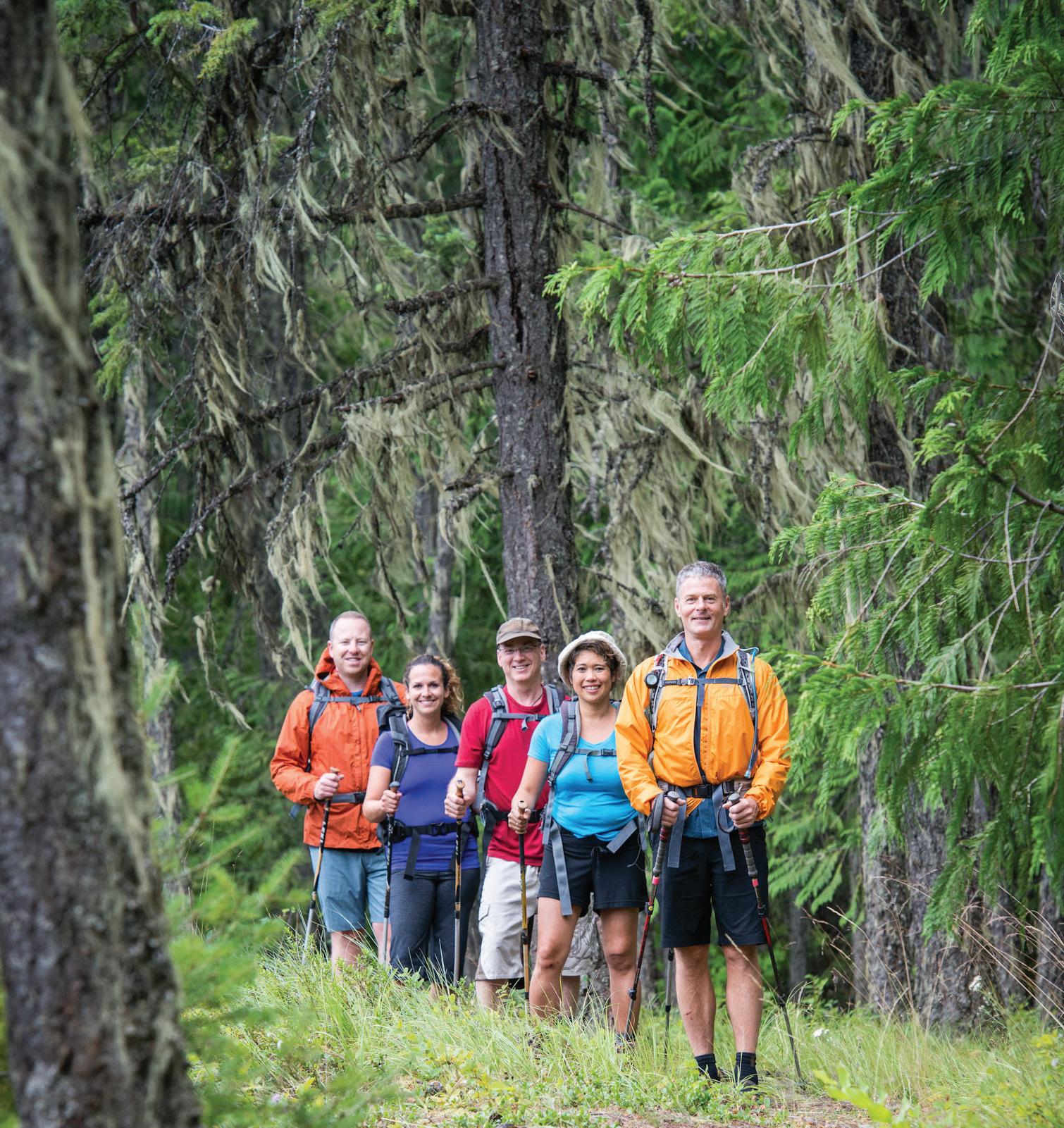
Fall and winter programs at the Rancho La Puerta Health Spa and Resort in Baja, Mexico, are $4,650 weekly. The resort features world-class amenities with private adobe casitas, organic gardens, health spas, swimming pools and tennis courts.
Travel is linked to health benefits such as decreased risk of heart attack, promotion of brain health and reduced stress levels.
Travel promotes physical activity and may lower the risk of dementia because new experiences, cultures and environments stimulate the brain. Travel also helps people forget the stressors of work and relax.
Driving at night can be dangerous for anyone due to decreased visibility. As we age, it can become more difficult to see at night. Follow these tips on how to drive safely after sundown.

1Make sure your headlights and brake lights work, are clean and aimed correctly. This will help you see your surroundings more clearly.
2 Increase the space between you and the car in front of you to be able to stop safely. Drive within the reach of your headlights.
3Avoid being blinded by oncoming vehicles by looking down toward the right of the road, which will serve as a guide. Use your day/night mirror to deflect light from cars behind you.
4Turn your high beams off when driving behind another car. Don’t use them in high-traffic or well-lit areas.
5Dim your instrument panel lighting to improve nightvision. Make sure your instrument lights never reflect directly into the driver's vision.
6Windshield streaks that are invisible during the day can cause glare at night. Clean with a cotton or microfiber cloth.
7If you have car trouble, pull off the road as far as possible. Turn on your hazard and interior lights, and wait for help.
 By Whitney Alexandra
By Whitney Alexandra
Nestled against the Rocky Moun tains in Colorado Springs is Janska, a success story with heart. Jan Erickson, owner, designer and visionary behind Janska, had a dream one night to create a jacket that provided comfort, style and dignity for a friend in a long-term care facility. Born from that creative process came a flood of ideas that today is the foundation of her work.
Not all growing apparel brands are laced with the same pride and style found in every American-made Janska product. Today, Erickson also spends time educating other entrepre neurs and consumers in how to help improve the U.S. economy through job creation and responsible purchasing habits. She
wants people to be aware that “1 million additional jobs would be created if each year, consum ers would thoughtfully read the labels and proudly purchase only three garments that have been made in the USA.”
Beyond the dignity and busi ness strategies that keep Janska thriving, their innovative styling is the cherry on top. The staple “Reversible Fleece” collection is unparalleled, as it showcases sleek styles paired with sporty and soft fleece fabrics that are comfy and warm.

The “All Weather” collection is created for ultimate function and style. With so many styles to choose from, this collection will fit into your wardrobe year round.
Keep an eye out for more innovative designs by Janska,
including the “Packable” collection that will be available in March 2016. This collection is made with a waterproof fabric and includes an inside passport pocket and a built-in bag.
All Weather CollectionModernmedicine is constantly evolving.
Unfortunately, science has yet to find a cure for all diseases, and patients are often left feeling hopeless. What happens when there is an incurable prognosis, or the body rejects specific medicines?
The holistic medicinal approach may be a route to explore. It is sometimes misunderstood and often a topic of controversy among traditional practitioners. However, patients who have used holistic medicine to deal with mental or medical problems have often experienced amazing results.
The holistic approach evaluates well-being as a whole and identifies mental and/or physical imbalances and the connection between the two.
The Mayo Clinic explains, “Complementary and alternative medicine (CAM) is the popular term for health and wellness therapies that have typically not been part of conventional Western medicine. Complementary means treatments that are used along
with conventional medicine. Alternative means treatments used in place of conventional medicine.”
CAM focuses on mind, body and spiritual connection while also integrating modern medicine. The following are typical “mind-body” practices:
YOGA: Physical postures that allow the body and mind to connect through the use of breath
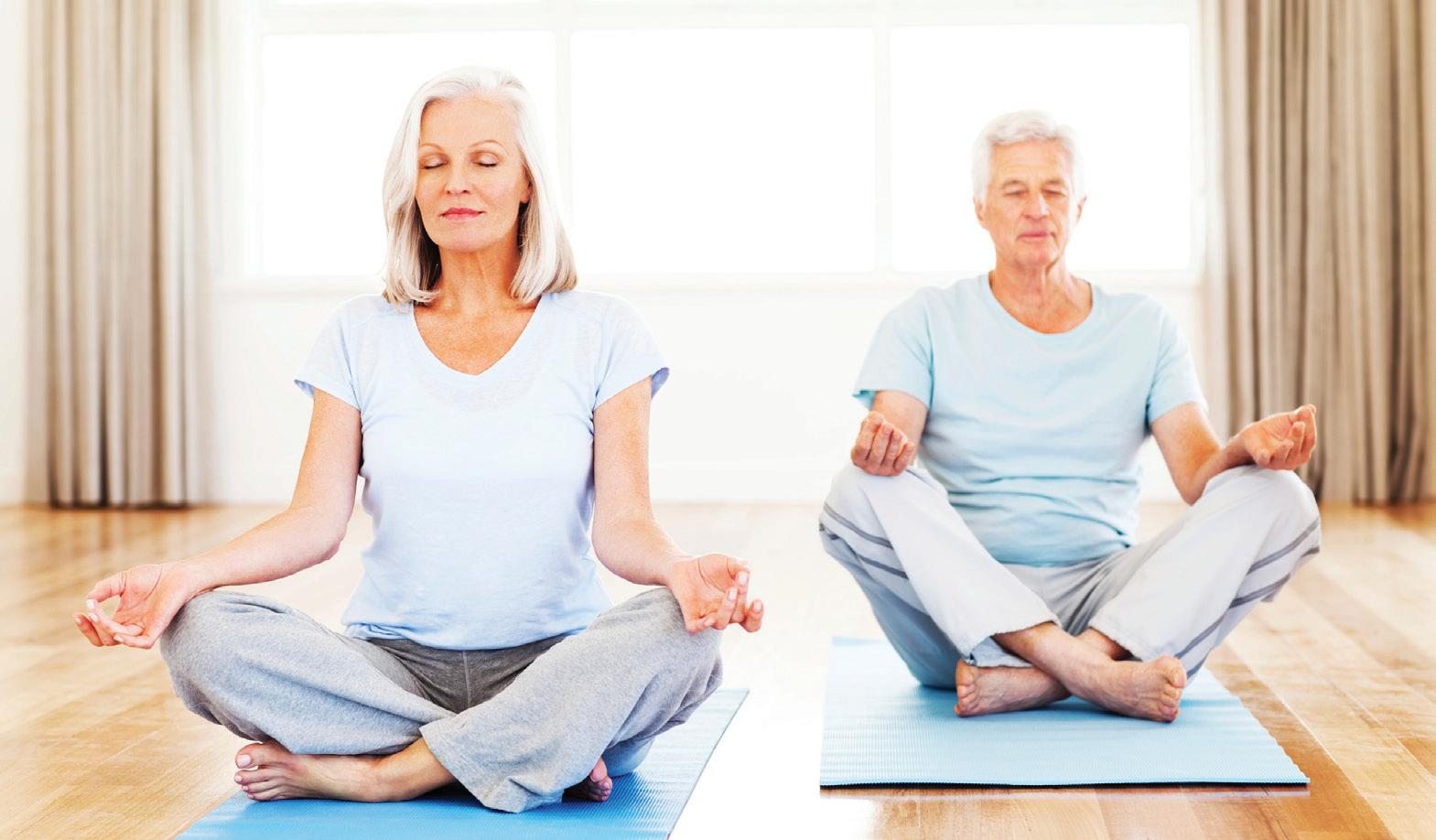
MEDITATION: Mental exercise concentrated on repetitive breathing and clearing the mind for the purpose of deep relaxation
ACUPUNCTURE: Ancient Chinese practice of pricking the skin with tiny needles at pressure points to alleviate emotional, mental and physical ailments
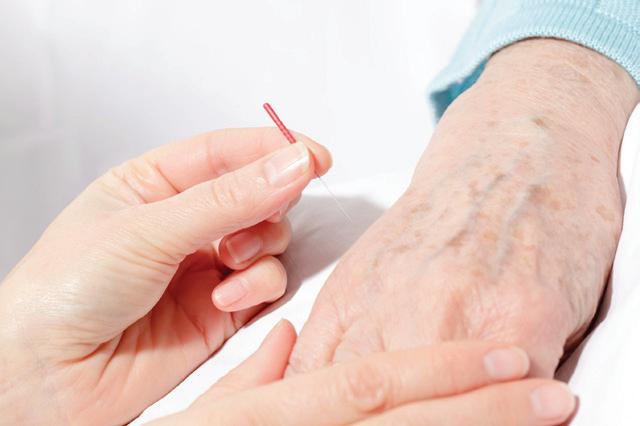
SPINAL MANIPULATION: Technique used to restore the spine’s structural integrity and reduce pain
MASSAGE THERAPY: Focuses on using gentle
application of the hands to address specific circular pathways in a sequential pattern
HERBAL TREATMENTS: Use of herbs and natural dietary supplements
Consult your physician before attempting an alternative to present medical care, do your own research and ask about your options. Visit the Academy of Integrative Health & Medicine's website (www.aihm. org) to find a local provider and research their credentials.
Patients who have used holistic medicine have often experienced amazing results.
*DO NOT attempt an alternative medicinal approach without consulting your physician.